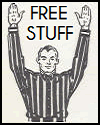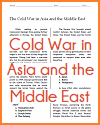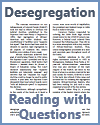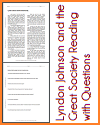When Dwight Eisenhower succeeded Truman as president, he accepted the basic framework of government responsibility established by the New Deal, but sought to hold the line on programs and expenditures. He termed his approach "dynamic conservatism" or "modern Republicanism," which meant, he explained, "conservative when it comes to money, liberal when it comes to human beings." A critic countered that Eisenhower appeared to argue that he would "strongly recommend the building of a great many schools...but not provide the money."
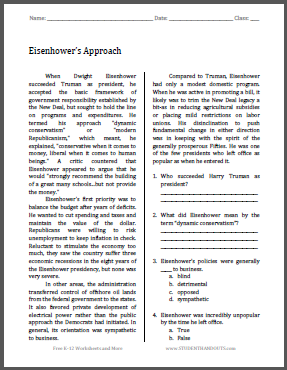 Eisenhower's first priority was to balance the budget after years of deficits. He wanted to cut spending and taxes and maintain the value of the dollar. Republicans were willing to risk unemployment to keep inflation in check. Reluctant to stimulate the economy too much, they saw the country suffer three economic recessions in the eight years of the Eisenhower presidency, but none was very severe.
Eisenhower's first priority was to balance the budget after years of deficits. He wanted to cut spending and taxes and maintain the value of the dollar. Republicans were willing to risk unemployment to keep inflation in check. Reluctant to stimulate the economy too much, they saw the country suffer three economic recessions in the eight years of the Eisenhower presidency, but none was very severe.
In other areas, the administration transferred control of offshore oil lands from the federal government to the states. It also favored private development of electrical power rather than the public approach the Democrats had initiated. In general, its orientation was sympathetic to business.
Compared to Truman, Eisenhower had only a modest domestic program. When he was active in promoting a bill, it likely was to trim the New Deal legacy a bit-as in reducing agricultural subsidies or placing mild restrictions on labor unions. His disinclination to push fundamental change in either direction was in keeping with the spirit of the generally prosperous Fifties. He was one of the few presidents who left office as popular as when he entered it.
Answer Key: (1) Dwight Eisenhower; (2) a.k.a. "modern republicanism"; "conservative when it comes to money, liberal when it comes to human beings"; (3) D - sympathetic; (4) B - False.
Click here to print.
|
 Eisenhower's first priority was to balance the budget after years of deficits. He wanted to cut spending and taxes and maintain the value of the dollar. Republicans were willing to risk unemployment to keep inflation in check. Reluctant to stimulate the economy too much, they saw the country suffer three economic recessions in the eight years of the Eisenhower presidency, but none was very severe.
Eisenhower's first priority was to balance the budget after years of deficits. He wanted to cut spending and taxes and maintain the value of the dollar. Republicans were willing to risk unemployment to keep inflation in check. Reluctant to stimulate the economy too much, they saw the country suffer three economic recessions in the eight years of the Eisenhower presidency, but none was very severe.